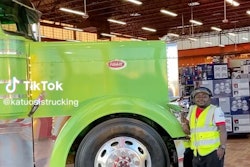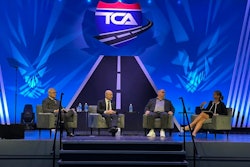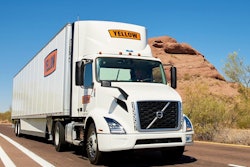The Truckload Carriers Association recognized the Top 10 small and Top 10 large carriers last week as Best Fleets to Drive For.
Best Fleets to Drive For is an annual survey and contest that recognizes the North American for-hire trucking companies that provide the best workplace experience for drivers. Fleets must be nominated by a company driver or independent contractor working with them, after which they are evaluated across a broad range of categories reflecting current best practices in human resources, including driver compensation, pension and benefits, professional development, driver and community support and safety record.
While the program focuses on fleets that are great for the driver, many of those top carriers also had something else in common: their programs for non-driver employees. After all, many office employees are former drivers.
One of the key takeaways I garnered from listening to the leaders of these carriers is the importance to create programs that develop employees at every level – from driver to back-office staff to leadership.
For example, Canadian carrier Bison Transport, which has been recognized by Best Fleets to Drive For multiple times, has a program called Bison University – the company’s skills development program for its office staff. Garth Pitzel, associate vice president of safety and driver development at Bison Transport, said this program has served the company well from a retention aspect, but it has also become a great recruiting tool.
Leaders of these carriers also talked about peer-to-peer recognition programs for their office staff like Challenger Motor Freight’s Made it Happen.
Every trucking company executive I have spoken to has said their drivers are the reason they have a job, and that is true. But these companies can’t afford to ignore their office staff that keep those drivers running. Those staff are also essential.
Carriers consistently train and coach and invest in technologies to help further develop their drivers. That’s driven by money because an accident costs money, from equipment to insurance premiums to potentially the loss of a driver. They should do the same for office staff. If your company doesn’t offer career, skills or leadership development programs for its office staff – if you’re not developing your own people – you’re hurting your own bottom line, from the cost of losing an employee and having to hire a new one, lowering back-office efficiency during that process, to even worse, affecting your reputation as an employer.
Drivers don’t want to work for a carrier that doesn’t invest in the people they work with on a daily basis.










